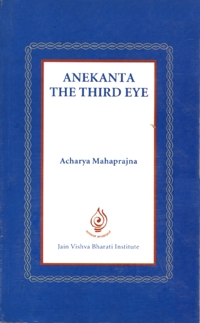
One gains strength to accept one's faults only when he develops the perspective of anekanta. Bhagvan Mahavira said:
"Dhammo sudvassa chittayi"
Dharma stays in the pure soul.
The question asked was, "Who is pure?"
Bhagvan replied, "The one who is straight is pure."
Lord Jesus Christ said, " A spiritual man is like a child."
Both are the same thing. To be straight is like being a child. A child is never complicated. And the complicated is never spiritual.
A question arose in my mind too. "Who is straight?" The one who is straight is the one who has the perception of anekanta. A man with a one-dimensional vision can never be straight. He is impassioned. He observes another's weaknesses, estimates the situation and makes scapegoats of people. That man is complicated. He does not have the anekantic perception.
May we become straight and adopt the anekantic point of view and estimate, for ourselves, the value of relativity. There are three principles of fate, time and effort. In the anekantic view neither of them is given value greater than the other. Each one's value is estimated truly with respect to relativity.
What is the value of the tools of meditation! Even meditation is not given undue importance. But the tools of meditation or the means used for meditational practice are of value. Without them one cannot meditate. Without the tools of meditation, what is the point of giving meditation any importance! How will the one who has not learnt to do penance, to observe restraint in food, to do kayotsarg (relaxation) and other asanas (exercises), to control the senses and repent for purification of soul and has not undone the mental knots of the past, meditate! The one in whom humility has not developed, the attitude of dedication and helping others has not developed, the longing for reading the scriptures has not grown, the doors to knowledge have not opened, the art of giving has not been learnt, the abandonment of ego has not been practiced, the correct and restrained use of the body, mind and speech have not been learnt but instead clings only to meditation, he will develop a closed mind. Even meditation gets caught in that closed mind. Without anekanta, meditation cannot be understood and no discussion on anekanta can be held without meditation. There is a link between meditation and anekanta. Bhagvan Mahavir gave the anekanta perception not from any text. He gave it on the basis of his experience. The one who is experienced does not have to read and it is possible that the one who reads much may not gain in experience at all. Reading alone is dangerous. As the experience-based conscious awakens, reading-based conscious becomes dormant. And as the reading-based conscious awakens, the experience-based conscious becomes dormant. All the great men of the world were least educated. Either they never got an opportunity to study or were sent out of school.
 Acharya Mahaprajna
Acharya Mahaprajna
